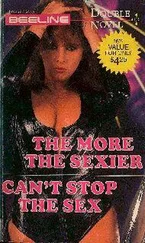By contrast, introverts “have a smaller response” in the reward system, writes psychologist Nettle, “and so go less out of their way to follow up [reward] cues.” They will, “like anyone, be drawn from time to time to sex, and parties, and status, but the kick they get will be relatively small, so they are not going to break a leg to get there.” In short, introverts just don’t buzz as easily.
* * *
In some ways, extroverts are lucky; buzz has a delightful champagne-bubble quality. It fires us up to work and play hard. It gives us the courage to take chances. Buzz also gets us to do things that would otherwise seem too difficult, like giving speeches. Imagine you work hard to prepare a talk on a subject you care about. You get your message across, and when you finish the audience rises to its feet, its clapping sustained and sincere. One person might leave the room feeling, “I’m glad I got my message across, but I’m also happy it’s over; now I can get back to the rest of my life.” Another person, more sensitive to buzz, might walk away feeling, “What a trip! Did you hear that applause? Did you see the expression on their faces when I made that life-changing point? This is great !”
But buzz also has considerable downsides. “Everyone assumes that it’s good to accentuate positive emotions, but that isn’t correct,” the psychology professor Richard Howard told me, pointing to the example of soccer victories that end in violence and property damage. “A lot of antisocial and self-defeating behavior results from people who amplify positive emotions.”
Another disadvantage of buzz may be its connection to risk—sometimes outsized risk. Buzz can cause us to ignore warning signs we should be heeding. When Ted Turner (who appears to be an extreme extrovert) compared the AOL–Time Warner deal to his first sexual experience, he may have been telling us that he was in the same buzzy state of mind as an adolescent who’s so excited about spending the night with his new girlfriend that he’s not thinking much about the consequences. This blindness to danger may explain why extroverts are more likely than introverts to be killed while driving, be hospitalized as a result of accident or injury, smoke, have risky sex, participate in high-risk sports, have affairs, and remarry. It also helps explain why extroverts are more prone than introverts to overconfidence—defined as greater confidence unmatched by greater ability. Buzz is JFK’s Camelot, but it’s also the Kennedy Curse.
* * *
This theory of extroversion is still young, and it is not absolute. We can’t say that all extroverts constantly crave rewards or that all introverts always brake for trouble. Still, the theory suggests that we should rethink the roles that introverts and extroverts play in their own lives, and in organizations. It suggests that when it comes time to make group decisions, extroverts would do well to listen to introverts—especially when they see problems ahead.
In the wake of the 2008 crash, a financial catastrophe caused in part by uncalculated risk-taking and blindness to threat, it became fashionable to speculate whether we’d have been better off with more women and fewer men—or less testosterone—on Wall Street. But maybe we should also ask what might have happened with a few more introverts at the helm—and a lot less dopamine.
Several studies answer this question implicitly. Kellogg School of Management Professor Camelia Kuhnen has found that the variation of a dopamine-regulating gene (DRD4) associated with a particularly thrill-seeking version of extroversion is a strong predictor of financial risk-taking. By contrast, people with a variant of a serotonin-regulating gene linked to introversion and sensitivity take 28 percent less financial risk than others. They have also been found to outperform their peers when playing gambling games calling for sophisticated decision-making. (When faced with a low probability of winning, people with this gene variant tend to be risk-averse; when they have a high probability of winning, they become relatively risk-seeking.) Another study, of sixty-four traders at an investment bank, found that the highest-performing traders tended to be emotionally stable introverts.
Introverts also seem to be better than extroverts at delaying gratification, a crucial life skill associated with everything from higher SAT scores and income to lower body mass index. In one study, scientists gave participants the choice of a small reward immediately (a gift certificate from Amazon) or a bigger gift certificate in two to four weeks. Objectively, the bigger reward in the near but not immediate future was the more desirable option. But many people went for the “I want it now” choice—and when they did, a brain scanner revealed that their reward network was activated. Those who held out for the larger reward two weeks hence showed more activity in the prefrontal cortex—the part of the new brain that talks us out of sending ill-considered e-mails and eating too much chocolate cake. (A similar study suggests that the former group tended to be extroverts and the latter group introverts.)
Back in the 1990s, when I was a junior associate at a Wall Street law firm, I found myself on a team of lawyers representing a bank considering buying a portfolio of subprime mortgage loans made by other lenders. My job was to perform due diligence—to review the documentation to see whether the loans had been made with the proper paperwork. Had the borrowers been notified of the interest rates they were slated to pay? That the rates would go up over time?
The papers turned out to be chock-full of irregularities. If I’d been in the bankers’ shoes, this would have made me nervous, very nervous. But when our legal team summarized the risks in a caution-filled conference call, the bankers seemed utterly untroubled. They saw the potential profits of buying those loans at a discount, and they wanted to go ahead with the deal. Yet it was just this kind of risk-reward miscalculation that contributed to the failure of many banks during the Great Recession of 2008.
At about the same time I evaluated that portfolio of loans, I heard a story circulating on Wall Street about a competition among investment banks for a prestigious piece of business. Each of the major banks sent a squad of their top employees to pitch the client. Each team deployed the usual tools: spread sheets, “pitch books,” and PowerPoint presentations. But the winning team added its own piece of theatrics: they ran into the room wearing matching baseball caps and T-shirts emblazoned with the letters FUD, an acronym for Fear, Uncertainty, and Doubt . In this case FUD had been crossed out with an emphatic red X; FUD was an unholy trinity. That team, the vanquishers of FUD, won the contest.
Disdain for FUD—and for the type of person who tends to experience it—is what helped cause the crash, says Boykin Curry, a managing director of the investment firm Eagle Capital, who had front-row seats to the 2008 meltdown. Too much power was concentrated in the hands of aggressive risk-takers. “For twenty years, the DNA of nearly every financial institution … morphed dangerously,” he told Newsweek magazine at the height of the crash. “Each time someone at the table pressed for more leverage and more risk, the next few years proved them ‘right.’ These people were emboldened, they were promoted and they gained control of ever more capital. Meanwhile, anyone in power who hesitated, who argued for caution, was proved ‘wrong.’ The cautious types were increasingly intimidated, passed over for promotion. They lost their hold on capital. This happened every day in almost every financial institution, over and over, until we ended up with a very specific kind of person running things.”
Читать дальше
![Сьюзан Кейн Quiet [The Power of Introverts in a World That Can't Stop Talking] обложка книги](/books/33084/syuzan-kejn-quiet-the-power-of-introverts-in-a-wo-cover.webp)











